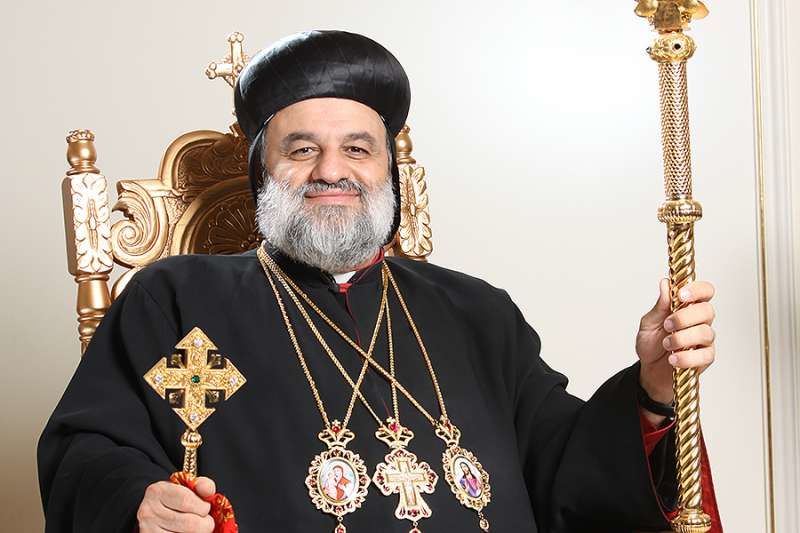For the first time in nearly six years, Christians from the eastern city of Deir Ezzor in Syria were able to celebrate a liturgy at the local church of St. Mary’s.
“It’s an indescribable feeling for us to pray in a nearly-destroyed church, which serves as a consolation for our hearts and a message of hope to the people of the city to come back and take part in building it anew,” said Syriac Orthodox Patriarch Ignatius Aphrem II of Antioch, who celebrated the liturgy, according to the National.
The liturgy was celebrated over the weekend on Feb. 3 with a small throng of worshippers numbering around two dozen, and a few local Muslim clerics. Because the altar was too damaged to use for the celebration of Eucharist, a makeshift table covered in a white cloth was used.
Despite the blown-out windows, strung wire and discarded pieces of artillery scattered throughout the church, the local faithful were grateful to celebrate the first Eucharist in years.
“Prayer for me is like new life,” said one of the worshippers, Sally Qassar, according to reports from the National.
“It gave me the determination to come back to Deir Ezzor and put up with the poor provision of services, and participate in rebuilding it,” she continued.
In 2012, rebels took over part of Deir Ezzor during the Syrian uprising, which included protests against the government and was part of the overarching Syrian Civil War. The city was later captured by Islamic militants in 2014.
The occupation drove thousands from Deir Ezzor, which once included 3,000 Christians.
In November, Syrian troops reclaimed their city, which had been left mostly destroyed and without basic provisions, such as water and electricity. Refugees have begun to make their way back to their hometown — a journey encouraged by the local Syriac Orthodox leader, Archbishop Maurice Amseeh.
“The important thing now is for life to come back — for Deir Ezzor’s residents and Christians to come back to it,” Archbishop Amseeh said.
One local, Shadi Tuma, has never left his town, despite the ongoing conflict and violence.
“The hard times that Deir Ezzor went through pushed the families to leave, but there was a determination inside of me to stay in this city,” Tuma said.
“Deir Ezzor will always have coexistence. Christians will always have a presence here.”

